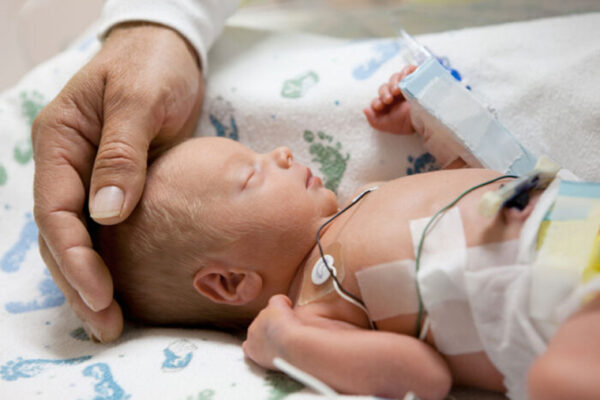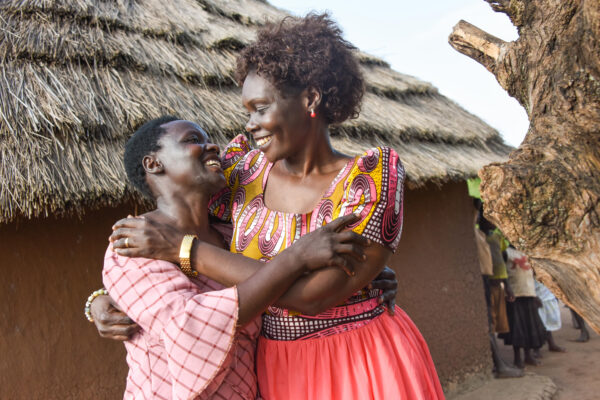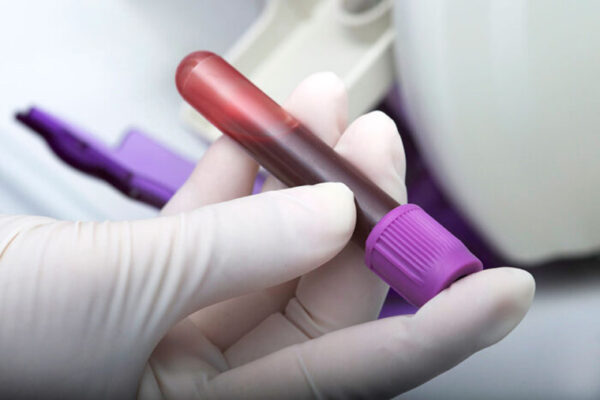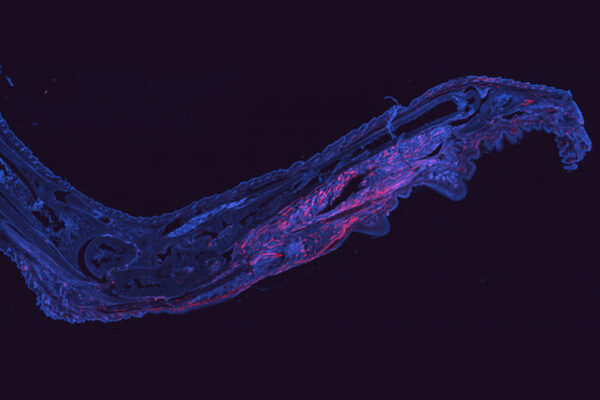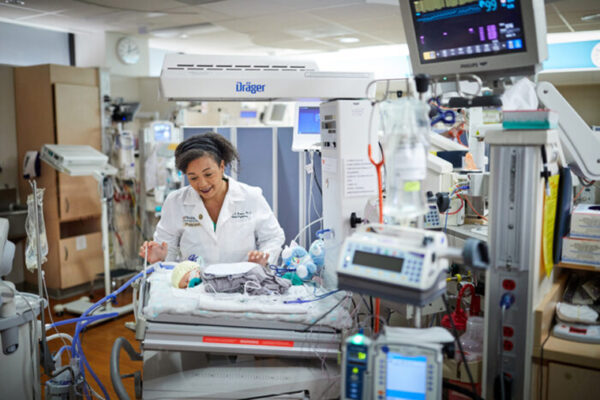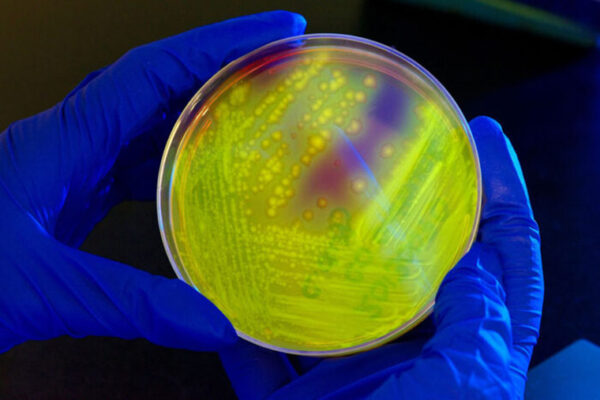Use of antibiotics in preemies has lasting, potentially harmful effects
Nearly all babies born prematurely receive antibiotics. A new study from the School of Medicine suggests that such early antibiotic treatment could have long-lasting and potentially harmful effects on the gut microbiome.
Promoting women’s rights in Uganda
Alice Emasu Seruyange (right), MSW ’10, has built the first hospital in Uganda specializing in treating obstetric fistulas. Here she is with a fistula survivor.
Violence and racism shape views of environmental issues
People living in marginalized communities in St. Louis, particularly African Americans, have been enduring, as one study participant said “real problems,” such as violence and racism, that are perceived as more immediate than issues of climate change, finds a study from the Brown School.
CAPA Clinic shows promising results for addiction treatment patients in St. Louis
The Community Academic Partnership on Addiction Clinic, a partnership between the Brown School and Preferred Family Healthcare, was able to increase treatment completion rates by 11% over a six-month time period.
Environmental racism in St. Louis
Black St. Louisans are exposed to considerably greater environmental risks than white residents, contributing to stark racial disparities regarding health, economic, and quality of life burdens, finds a new report prepared by the Interdisciplinary Environmental Clinic (IEC) at Washington University School of Law.
Fentanyl, Inc.
How Rogue Chemists Are Creating the Deadliest Wave of the Opioid Epidemic
A deeply human story, Fentanyl, Inc. is the first deep-dive investigation of a hazardous and illicit industry that has created a worldwide epidemic, ravaging communities and overwhelming and confounding government agencies that are challenged to combat it. “A whole new crop of chemicals is radically changing the recreational drug landscape,” writes Ben Westhoff. “These are known as Novel Psychoactive Substances (NPS) and they include replacements for known drugs like heroin, cocaine, ecstasy, and marijuana. They are synthetic, made in a laboratory, and are much more potent than traditional drugs”—and all-too-often tragically lethal.
Zika diagnostic test granted market authorization by FDA
A test for signs of Zika infection has been granted market authorization by the Food and Drug Administration. The test is based in part on an antibody developed by researchers at the School of Medicine.
Arthritis-causing virus hides in body for months after infection
Researchers at the School of Medicine have developed a way to fluorescently tag cells infected with chikungunya virus. The technique opens up new avenues to study how the virus persists in the body and potentially could lead to a treatment.
Stable home lives improve prospects for preemies
A new School of Medicine study has found that as premature babies grow, their mental health may be related less to medical challenges they face after birth than to the environment the babies enter once they leave the newborn intensive care unit.
Gut makeup could make diarrhea less likely
Researchers at the School of Medicine have found the molecular signature of a healthy gut microbial community – the kind that can keep the intestinal bacteria Clostridium difficile (C. difficile) from overgrowing and causing diarrhea.
Older Stories
